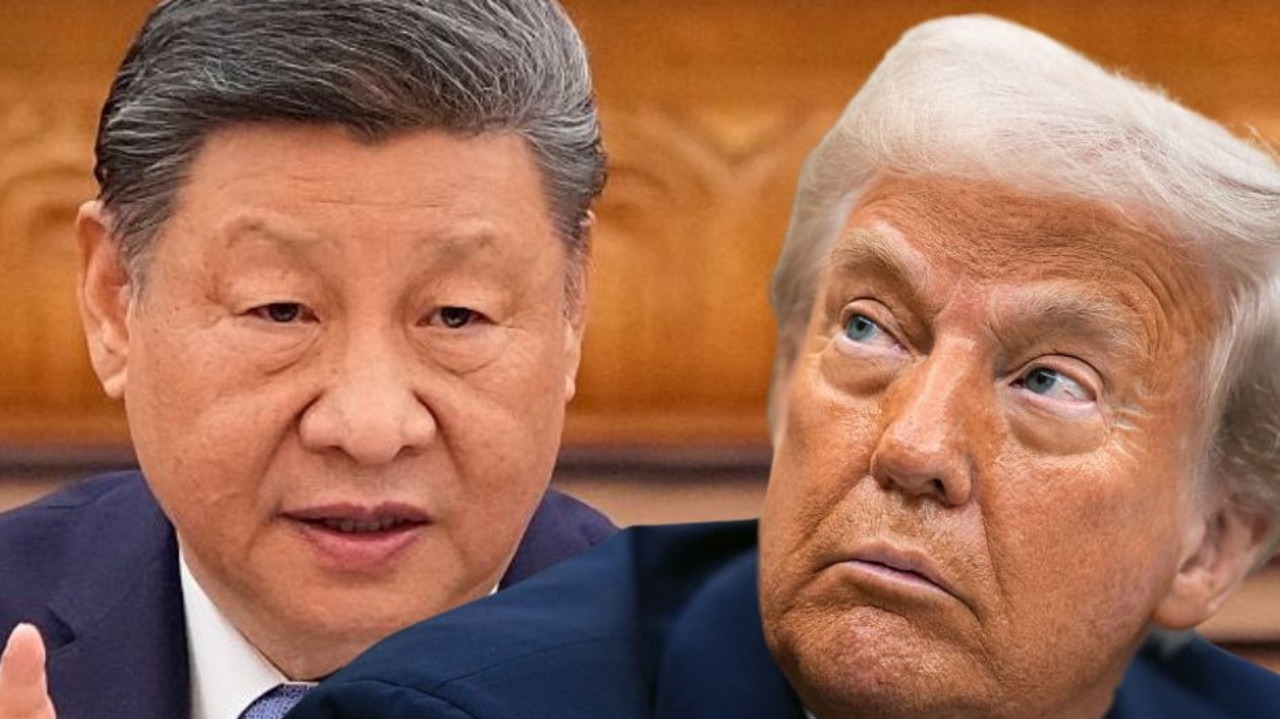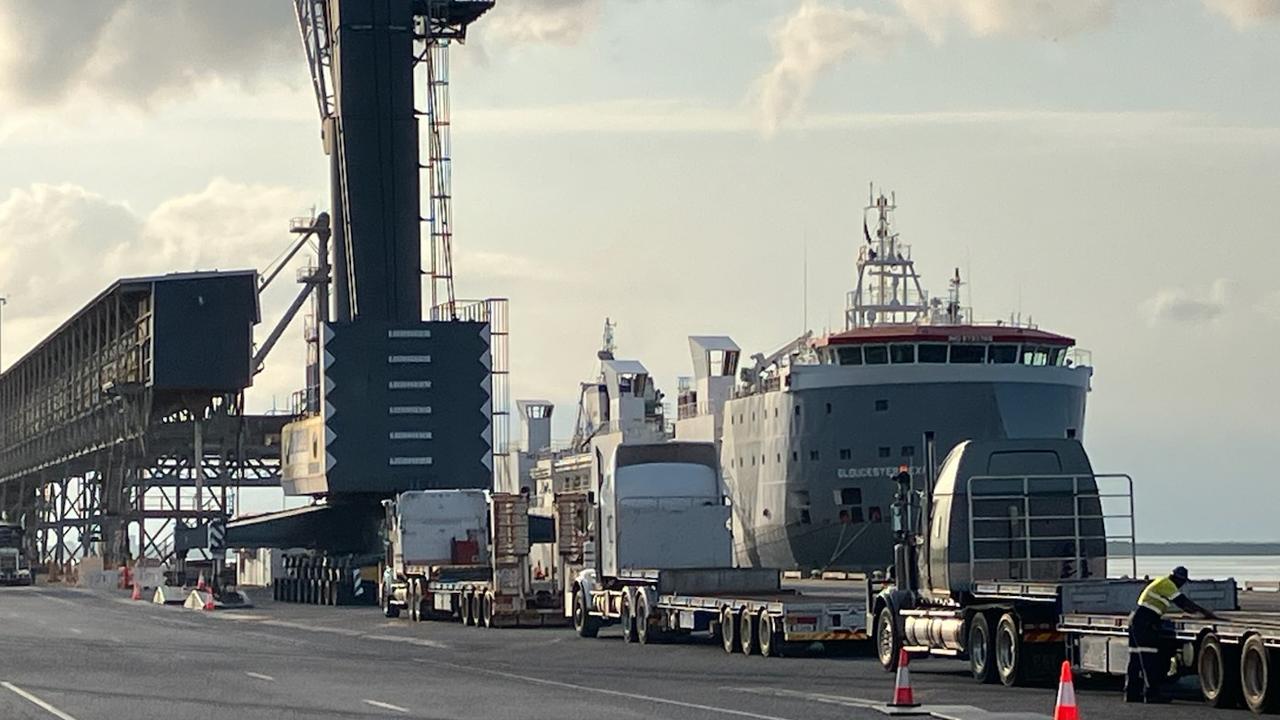‘Disastrous’: One industry smashed by tariffs
One of America’s most iconic brands saw its share price plunge after US President Donald Trump announced some of the harshest tariffs.

Economy
Don't miss out on the headlines from Economy. Followed categories will be added to My News.
One of America’s most iconic brands Nike saw its share price plunge after US President Donald Trump announced some of the harshest tariffs on countries where its manufacturing hubs are located with fears the move could be “disastrous” for the industry.
Vietnam is the largest supplier of Nike shoes, according to the trade group Footwear Distributors and Retailers of America, but the country is facing a 46 per cent tariff announced by Mr Trump. It would be the sixth highest tariff imposed on a nation.
On the back of Mr Trump’s bombshell announcements on Thursday, Nike’s share price plummeted and its market value took a $US13 billion hit, as investors feared price increases and a potential slowdown in consumer spending.
Morningstar analyst David Swartz told Fast Company that if the tariffs stick, shoe prices will rise significantly higher and sales will drop, particularly as the US faces a recession.
“It may not be so easy for Nike to sell LeBron shoes if they have to raise the price from $180 to $240. They will sell less volume ultimately,” he said.
“It’s basic supply and demand. Increase price, it reduces demand. Economic laws have not been changed.”

Vietnam, Indonesia and China manufacture 95 per cent of all Nike brand footwear and all have been targeted under Trump’s Liberation Day plan.
China was one of the hardest hit when it was slapped with 54 per cent tariff for its imports, while Indonesia faces a 32 per cent rate.
But Mr Trump revealed on Friday that he had a “productive call” with key officials from Vietnam.
“Just had a very productive call with To Lam, General Secretary of the Communist Party of Vietnam, who told me that Vietnam wants to cut their Tariffs down to ZERO if they are able to make an agreement with the U.S.,” Mr Trump posted on Truth Social.
“I thanked him on behalf of our country, and said I look forward to a meeting in the near future.”
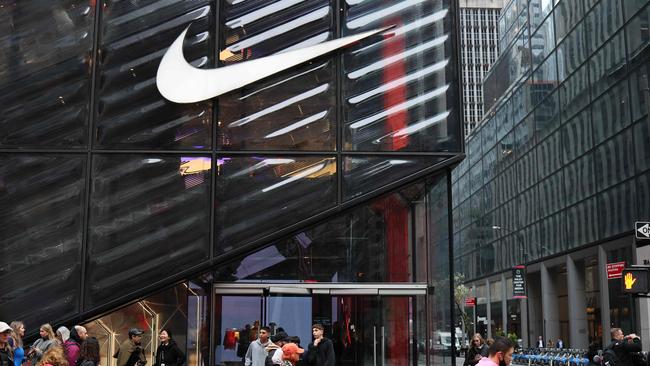
Two days before Trump’s proposed Liberation Day for US trade, Hanoi had eliminated at least 23 tariffs on US imports to try to forestall any conflict, reported the New York Post.
US trade with Vietnam was valued at roughly $US149.6 billion last year, according to the Office of the US Trade Representative – with exports totalling $US13.1 billion and imports accounting for $136.6 billion.
The news of the Vietnam negotiations saw Nike shares rebounded by 6 per cent after they had slumped by 14 per cent after the tariff announcements.
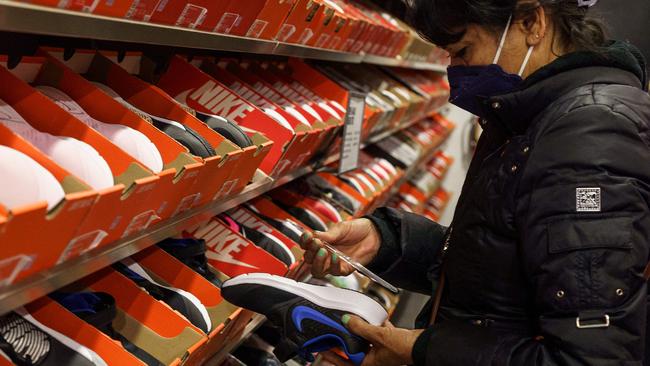
Mr Swartz said that the tariffs could be “potentially disastrous” for the footwear industry, adding he sees “the chances that any of this leads to substantial manufacturing of footwear and apparel in the US” as “practically zero”.
Instead the factory, brand and consumers would wear the rising costs together.
“The pain is gonna be spread out. I think certain companies are going to have more negation power than others. Let’s say Nike uses a factory for apparel or footwear, it works with that factory over potentially decades,” he told Fast Company.
“They can negotiate with them … [saying] ‘we need to reduce what we pay you this year while tariffs are going … The factory is not going to say, ‘we won’t work with Nike anymore. They can’t do that. They would go bankrupt.”
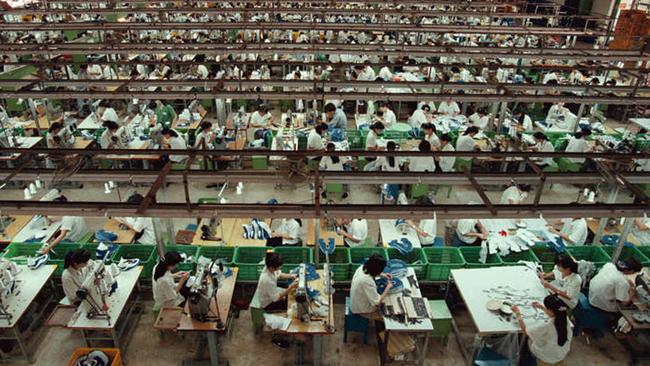
However, Nike’s global branding sees nearly 60 per cent of the footwear giant’s total sales coming from outside the US, which could shelter it from some of the feared impacts.
Yet, traditional powerhouses of the sports shoe trade are seeing their market shares cut by old rivals and newcomers moving up the pack.
Nike recently reported a nine per cent decline in third-quarter revenues.
The Oregon-based manufacturer posted revenues of $US11.3 billion for the quarter ended on February, down by about 7 per cent.
Nike’s direct-to-consumer business, which include Nike-owned stores, recorded a steeper decline, with revenues dropping 12 per cent to $US4.7 billion. Online sales were particularly hit, plunging 15 per cent.
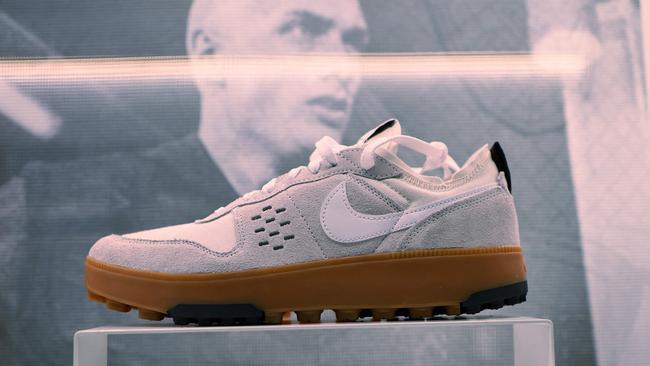
Nike and Adidas have long dominated the sportswear and athletic shoes scene but analysis shows their grip has slipped in recent years.
Back in 2018, those two companies accounted for 63 per cent of all sales in the sportswear industry.
In 2023 it was just 51 per cent – 35 per cent for Nike and 16 per cent for Adidas – according to investment bank Morgan Stanley.
Swiss running shoe brand On and other manufacturers such as Hoka and established brands New Balance, Puma and Asics have made ground globally as Nike and Adidas shifted focus to selling through their own stores and websites.
Nike chief financial officer Matthew Friend had earlier warned Trump’s tariffs would have an impact but also flagged several external factors that create uncertainty including geopolitical dynamics, volatile rates and tax regulations and other macro factors hurting consumer confidence.
– with Heath Parkes-Hupton
More Coverage
Originally published as ‘Disastrous’: One industry smashed by tariffs



